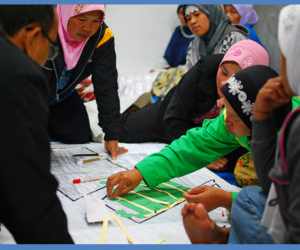
Sorry, your browser is not compatible with this application. Please use the latest version of Google Chrome, Mozilla Firefox, Microsoft Edge or Safari.
Strategic Framework for Mainstreaming Citizen Engagement in World Bank Group Operations
The World Bank Group (WBG) has a long history of multi-stakeholder engagement in the operations it funds. Multi-stakeholder engagement began in the 1970s, was formalized in the 1980s, and deepened throughout the 1990s through participatory approaches in operations. Concepts of social inclusion, social accountability, and governance and anticorruption (GAC) emerged during the early 2000s. The landmark 2004 World Development Report Making Services Work for Poor People highlighted the benefits of listening to citizens to improve propoor targeting of service delivery. The 2007 GAC Strategy introduced engagement with demandside actors, and its 2012 Update undertook to “support initiatives that enable greater openness in governments and closer interaction among citizens, the private sector and the state.” Also in 2012, the establishment of the Global Partnership for Social Accountability (GPSA) provided a mechanism for capacity building for civil society organizations (CSOs) to implement social accountability programs in countries where governments have agreed to these approaches. In addition, the Bank, IFC, and MIGA all require engagement with project-affected people and communities as part of their safeguard policies or performance standards.

| Format: |
|
| Topics: | |
| Website: | Visit Publisher Website |
| Publisher: | The World Bank |
| Published: | October 13, 2020 |
| License: | Copyrighted |
| Copyright: | © 2020 The World Bank Group, All Rights Reserved. |
Featured Content

Contact Publisher


Claim Content





